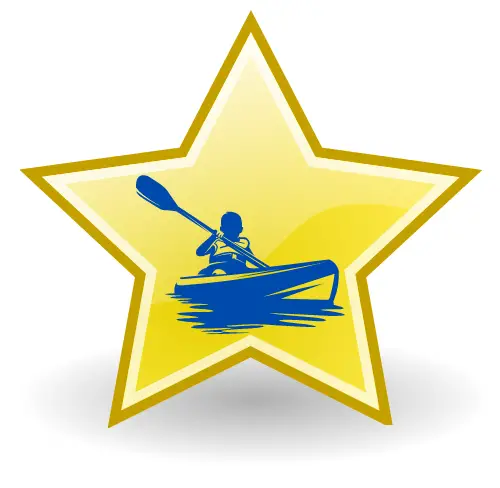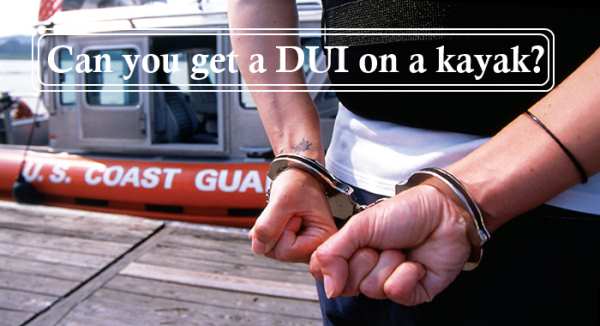We’ve never thought about getting a DUI on the water in a kayak. We view our kayaks as a fun toy that we can laugh at, paddle, and revel in the freedom of the open sea. What’s better than an open-air adventure than a sip of a beer and glass of wine. As I said before I began to research this article I didn’t know that you could be charged with a DUI when you kayak.
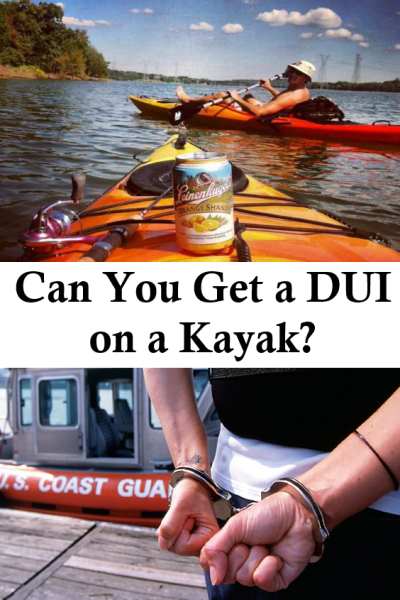
Are you able to get a DUI on the kayak? Yes, you can receive a “DUI” on your kayak. In the majority of states, it is illegal to operate a kayak that has BALs of 0.08 percent or higher. (Colorado and Wyoming it’s 0.10%). A DUI when kayaking is referred to as BUI, which stands for Boating under the influence. Additionally, Canada, Australia, New Zealand, and the UK have their own version of BUI laws.
I am sure you are surprised to hear that too. But law enforcement officers see the kayaks as “toys” for what they really are, vessels in public waters. In addition, since we’re using similar waters to motorized boats, paddlers are operating under the same rules and, therefore, you’re eligible to be issued a “DUI” on a kayak.
But that’s not even the complete story. There are exceptions and some rules that are unique, dependent on the nation or state you’re located in.
Table of Contents
What is Boating Under the Influence (BUI)?
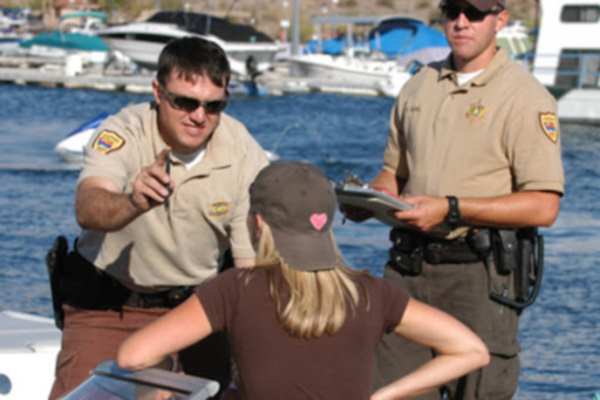
Although most of us are prone to think of the concept of “Drinking and Driving” as the most common DUI drinking and driving, alcohol is just one element of the.
BUI could and does in many states refer to being under the influence of any controlled substance or any other substance that prevents a kayaker in the ability to safely navigate their kayak. The legal definitions for BUI vary between states, however, the underlying intent behind BUI laws is always the same. Anything that hinders your ability to safely and efficiently operate your kayak is an element that you are “under the influence” of.
It doesn’t matter if it’s marijuana, alcohol, amphetamines, or sleepy time cough medicine, if an officer suspects that your capacity to control your boat is impaired due to any reason, you could be accused of BUI.
I can recall having a conversation with a law enforcement colleague who I asked about a herbal remedy for anxiety I was taking, which was Valerian Root. My eyes popped out of my eyes when the man said that if this product makes you feel euphoric and content and affects your driving ability it’s likely you’re driving being influenced.
What’s the Difference Between a BUI and a BWI?
There’s no technical difference between the BUI and the BWI.
- BUI– Boating Under the Influence
- BWI– Boating While Intoxicated
Different states use different wording to state the same thing–operating a vessel under the influence/intoxicated is illegal.
What do the Police Consider a “Vessel?”
This is where the interpretation of BUI laws becomes very difficult. It’s the responsibility of each officer to interpret and enforce the state’s boating laws. Since kayaking has grown in popularity over a short period of time, state laws on boating haven’t kept up with the pace of their implementation.
The officers in the field need to make decisions on various aspects when they encounter an individual kayaker impaired.
“Motorized” = “Vessel”
The most straightforward way to explain this is that the moment the kayak you are using or canoe is equipped with an engine for trolling to fish or something else it’s a “vessel” and an officer is likely to treat you as if you were driving a 200HP fishing boat.
If you are drunk boating on the trolling kayak is BUI.
“Non-motorized” = “It Depends…”
What’s up for determination is when on the category of a “manual-powered”, “non-motorized”, “powered by paddle or oar” vessel. Some states exempt kayaks that use that language, and a lot of states contain “anyone operating any vessel”.
In this case, police officers, based on their interpretation of the state’s statutes, may issue you with a BUI … and opt not to. Even if the law isn’t crystal clear the wording unclear or you “didn’t know”, you’re likely to go to court to sort all this out.
Also, you should be aware of your state’s regulations on “non-motorized” vessels or any other words that states employ to exempt kayaks under BUI laws.
The best bet? Avoid drinking and kayaking.
What’s the Fine for a DUI on a Kayak?

BUI penalties vary according to the severity and vary from state, as well as whether it’s an initial, second, or repeat offense.
- The First Time Offense Generally speaking the fines for first-time offenses are $200-$1,000 while jail time ranges from between 30 and 6 months. In general, the first offenses are misdemeanors.
- Second offense The penalties are higher, ranging from $500 to $2,000 and ranging from 6 months up to more than 1 year behind bars. The majority of second offenses are misdemeanors.
- Repeat offender If you are a repeated BUI laws offender, the fines and jail terms can range from $1,000 to $3000 and from 3 months up to two years in jail.
- Extraordinary Circumstances In certain states, including Delaware If you have minors aboard the vessel along with you, additional penalties and jail sentences could apply. Repeat offenders could be convicted of BUI, a felony BUI.
Along with fines and prison time, you may be able to have your boating permit for this state temporarily suspended for a couple of years, all the way to the age of. In addition, you could be required to attend an alcohol education course or complete community service hours after getting out of jail.
How to Avoid a DUI on a Kayak

Now, you’ve probably been asking yourself how you can avoid all this BUI discomfort. At the point I was completed with my research this was all I wanted to be aware of.
The most effective way to avoid getting a BUI when you’re on the water is to avoid drinking! Prior to or during or after.
It’s not surprising that certain, we all like our drinks and it’s never easy to become Larry Legality in a group of kayak campers.
So, if you take a sip during the lake during a camping trip with kayaks be sure to put enough time between when you’re planning to go out and kayak. But, as I’ve said and in the current situation regarding law enforcement for recreational boats, it’s best to avoid your drinking until you’ve finished kayaking for the day.
Since alcohol lowers the body's temperature, falling in the cold water would be dangerous.
If You do Get Stopped for BUI…
As a general rule, if you are doing anything illegal, you will most likely be stopped by the police at some point. It’s impossible to avoid getting slapped on the wrist by the police every time. It is important to remember that many meetings with law enforcement depend on your personal track record, how polite you are, and even how well the day of the officer has gone. Therefore, be honest, polite, and respectful when stopped and you will have a much better experience.
You can follow these steps in these situations:
STEP 1 – Don’t panic and stop calmly.
STEP 2 – Being polite is always a good idea.
STEP 3 – Alcohol should not be consumed.
STEP 4 – You shouldn’t take any field sobriety tests.
STEP 5 – You shouldn’t give up on a chemical test (blood, urine, breath).
STEP 6 – After being arrested, refrain from making any statements, especially on the police cruiser.
At any time during the above interaction, you are entitled to call your lawyer.
Why the Crackdown on Kayaks?
In a time where police and education regarding drinking and boating were just starting to make an impact in the reduction of boating deaths and accidents caused by alcohol, paddling sports, and specifically kayaking became extremely popular.
This is why, even though boating accidents resulting from BUI are decreasing, kayaking deaths, in particular, are increasing.
If you consider this the fact that kayaks tend to be less powerful than other boats, they are less maneuverable and less likely to get away from problems in a hurry It’s not surprising why law enforcement officers have become very serious about police work with kayakers as well as motorized boaters.
The United States

If you are considering making a decision that you believe could be illegal, it’s best to look up your state’s specific laws on boating Here. The boating laws in the United States tend to be loose, permitting officials to make decisions on the basis of a case-by-case.
Many kayakers believe that kayaks don’t have to be subject to the same regulations as other watercraft like boats, for example. Boats are legally required to carry adequate lighting, whistles, and flags in certain states. Although this may be the case some states use the term the word “vessel” in their BUI same laws, which means that any kind of watercraft that is used for transport is subject to a BUI. You are able to obtain a BUI in a variety of states for almost anything that is floating in the water including inflatables that have at least one air chamber within Ohio.
The truth is that getting the BUI is dependent on the specifics of how the judge interprets the law, and whether or not you’ve violated it. If you’re clearly drunk and risking your life on the water, you could end up with a huge penalty or even jail time.
Canada

The shock of my life was to discover the strictness Canada is in regards to drinking alcohol while kayaking. In Canada, it is known as a “vessel” which is subject to the same DUI laws as motor vehicles can you get a DUI on a kayak. You’re considered to be “driving impaired” when your BAC is at 80 mg or more. Although everyone is different at different levels of intoxication, however, the law doesn’t alter.
A conviction for BUIs or BUI in Canada can result in fines that start at 600dollars and upwards of many months in jail. It is recommended to research the boating laws for your specific province prior to dipping your toes in one in the lake. You can check by visiting here.
The UK (United Kingdom)

The United Kingdom takes a different approach to the law regarding paddling while under the influence. The law on alcohol legislation is only applicable to watercraft that are greater than 23 feet. It is technically possible to drink alcohol while kayaking in The United Kingdom without the possibility of a BUI but you could still be charged with public intoxication or disrupting the peace when you are disruptive or dangerous after drinking.
Please drink responsibly.
Although the law appears to be a bit lenient with kayaks within the UK however, it’s recommended to check with your local police station and verify prior to drinking a drink in your boat.
Australia

A firm and uncompromising position, Australian kayakers are subject to the same laws as all other water vessels. This means that there is no tolerance to alcohol consumption when kayaking, which is within the guidelines of NSW marine laws. It is your responsibility to take care of your kayak, and for ensuring that it adheres to the guidelines set out clearly in this article.
New Zealand
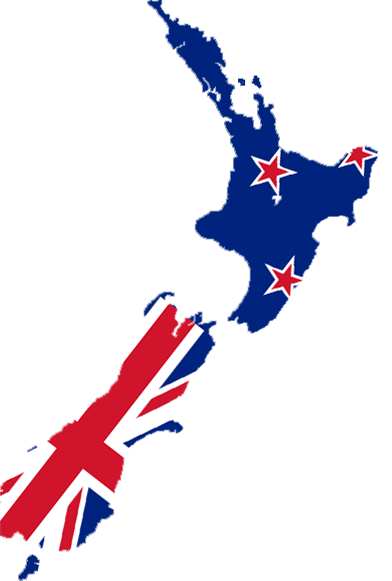
Like Australia, New Zealand requires kayakers to abide by all laws regarding boating. The law stipulates that one can be charged when operating a watercraft impaired, which includes kayaks, in accordance with Section 65 under the Maritime Transport Act. While there isn’t any license needed to operate a pleasure vessel on the waters of New Zealand, Ignorance of the law does not reason to be excused. It is highly recommended to enroll in a boating course or learn about the law before you go out on the water here.
You may be interested in reading more articles on What Should You Do When Approaching a Low-Head Dam in a Canoe or Kayak and How to Get In and Out of a Kayak Safely.
Summing It Up
So, in the end, it’s true that getting accused of a BUI or DUI is more likely to occur if you’re found to be on the boat while drunk regardless of where you’re around the globe. The majority of countries consider the act of drinking as being as serious of a crime as driving while drunk.
Whenever you are operating a kayak or boat, it is best to avoid alcohol altogether, since you are ten times more likely to die in an accident if your blood alcohol level is greater than 0.10% than if you are sober.
Other than the possible fines and jail time security of other people is your main concern: Being the rule-following, smug killjoy within your kayaking buddies isn’t always easy, however, the simple act of saying “No” to drinking when kayaking can – literally – save a life.
If you are new to kayaking, be sure to wear a life jacket when going into the water (Extrasport Eagle XS/S Red or Onyx MoveVent Dynamic).
Our best posts:
